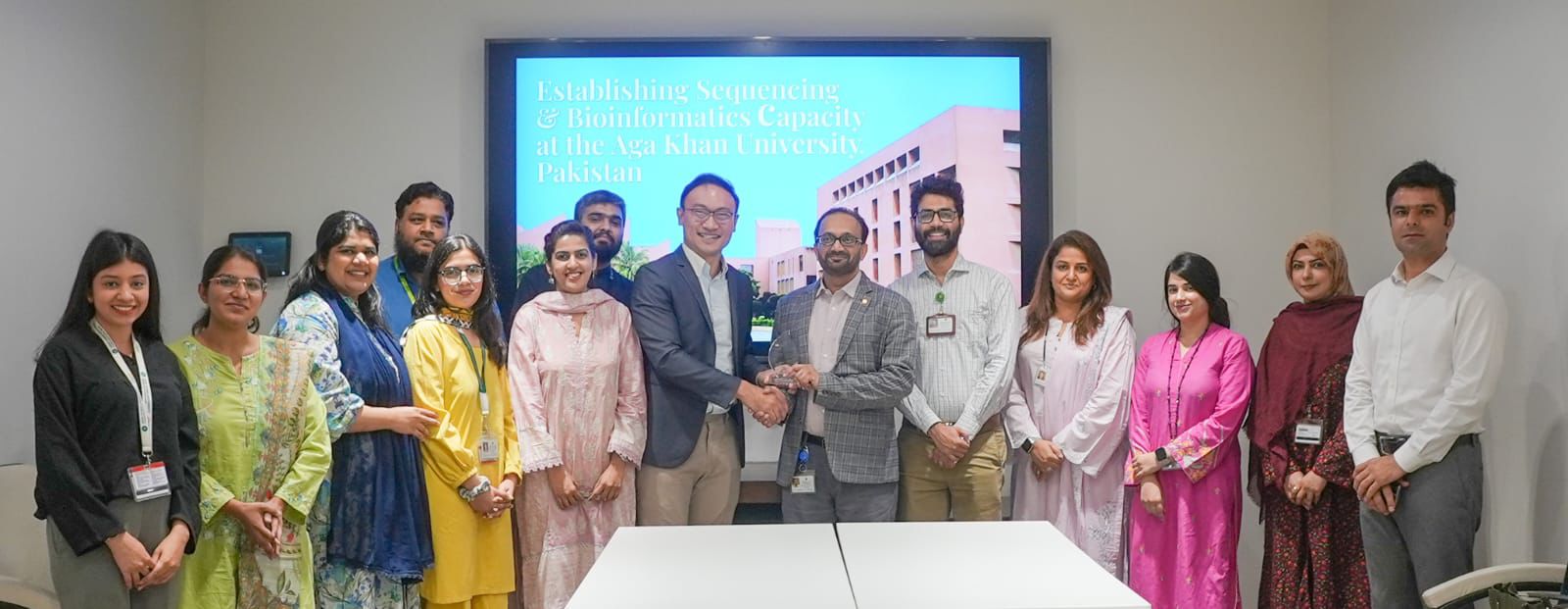Wastewater and Environmental Surveillance (WES) is gaining traction as a vital complement to traditional disease surveillance, particularly in regions where clinical data is limited. In April 2025, a stakeholder mission in Pakistan brought together public health leaders, technical experts and institutions to explore how WES can be systematically integrated into the country’s national surveillance framework.
Bridging science and systems
The mission facilitated multi-sectoral engagement across human, animal, and environmental health domains—illustrating the One Health approach in action. Two key national institutions, the National Institute of Health (NIH) in Islamabad and the Aga Khan University (AKU) in Karachi, showcased their capabilities in microbiological and molecular surveillance, signalling Pakistan’s readiness to scale up WES technically and institutionally.
Stakeholder-driven strategy development
A workshop co-organised by NIH, AKU and the Asia Pathogen Genomics Initiative (Asia PGI) brought together over 50 representatives from government, academia and public health sectors. Participants shared current surveillance programmes and assessed how WES could enhance early warning systems, guide vaccine strategies and support risk assessment for infectious diseases.
The workshop included a detailed SWOT analysis to identify the opportunities and challenges in implementing a national WES programme. Existing disease-specific WES use cases—from polio and COVID-19 to antimicrobial resistance and typhoid—offered concrete examples of the value of environmental sampling for tracking disease trends and informing public health response.
Participants also began prioritising target pathogens for surveillance, aligning with national notifiable disease and vaccine-preventable disease strategies. Discussions underscored the need for cross-sector collaboration, policy alignment and financing mechanisms to ensure sustainability.
Dr. Rehan Zafar (NIH) facilitating a group discussion on pathogen prioritisation. (Photo credit: NIH Pakistan)
From left to right: Dr. Vincent Pang (WES Lead, Asia PGI), Dr. Afreenish Hassan (Co-PI, NIH) and Dr. Muhammad Imran Nisar (Co-PI, AKU) partnering to integrate WES for Public Health. (Photo credit: NIH Pakistan)
Dr. Vincent Pang (WES Lead, Asia PGI) with Dr. Muhammad Salman (CEO, NIH) and his team discussing potential public health impacts of wastewater & environmental surveillance of vaccine-preventable diseases. (Photo credit: NIH Pakistan)
Three key lessons for WES integration
From the discussions, three key enablers for national WES integration emerged:
- Community engagement: Public awareness and support are essential to ensure the long-term success of WES programmes. Efforts must include community education to build trust and understanding of the benefits.
- Cross-Sector coordination: Regular platforms for dialogue between ministries, laboratories and local health authorities are vital. These ensure data sharing, harmonised protocols and sustained commitment.
- Demonstrated impact: Countries must link WES to measurable public health outcomes and cost-effectiveness to secure national investment and donor support.
As emphasised by participants, WES is particularly valuable in settings with limited clinical data—providing early warning signals, supporting outbreak response and filling critical surveillance gaps.
Looking ahead
The commitment shown by Pakistan’s public health leadership reflects a growing regional momentum to embed WES into national disease surveillance systems. Dr Muhammad Salman, CEO of NIH, reinforced this in his closing remarks: “We are very thankful to have everyone here to discuss the important topic of WES for Pakistan. Everyone has a part to play to successfully develop this national WES strategy.”
As countries move towards more resilient, data-driven public health strategies, experiences like this offer important lessons in system design, stakeholder engagement and capacity-building.

A group photo with Dr. Muhammad Salman (CEO, NIH), Dr. Afreenish Hassan (NIH) and their team. (Photo credit: NIH Pakistan)

A group photo with Dr Fyezah Jehan (Professor and Chairperson, Department of Paediatrics and Child Health), Dr. Muhammad Imran Nisar (Associate Professor, AKU) and their team. (Photo credit: Aga Khan University)